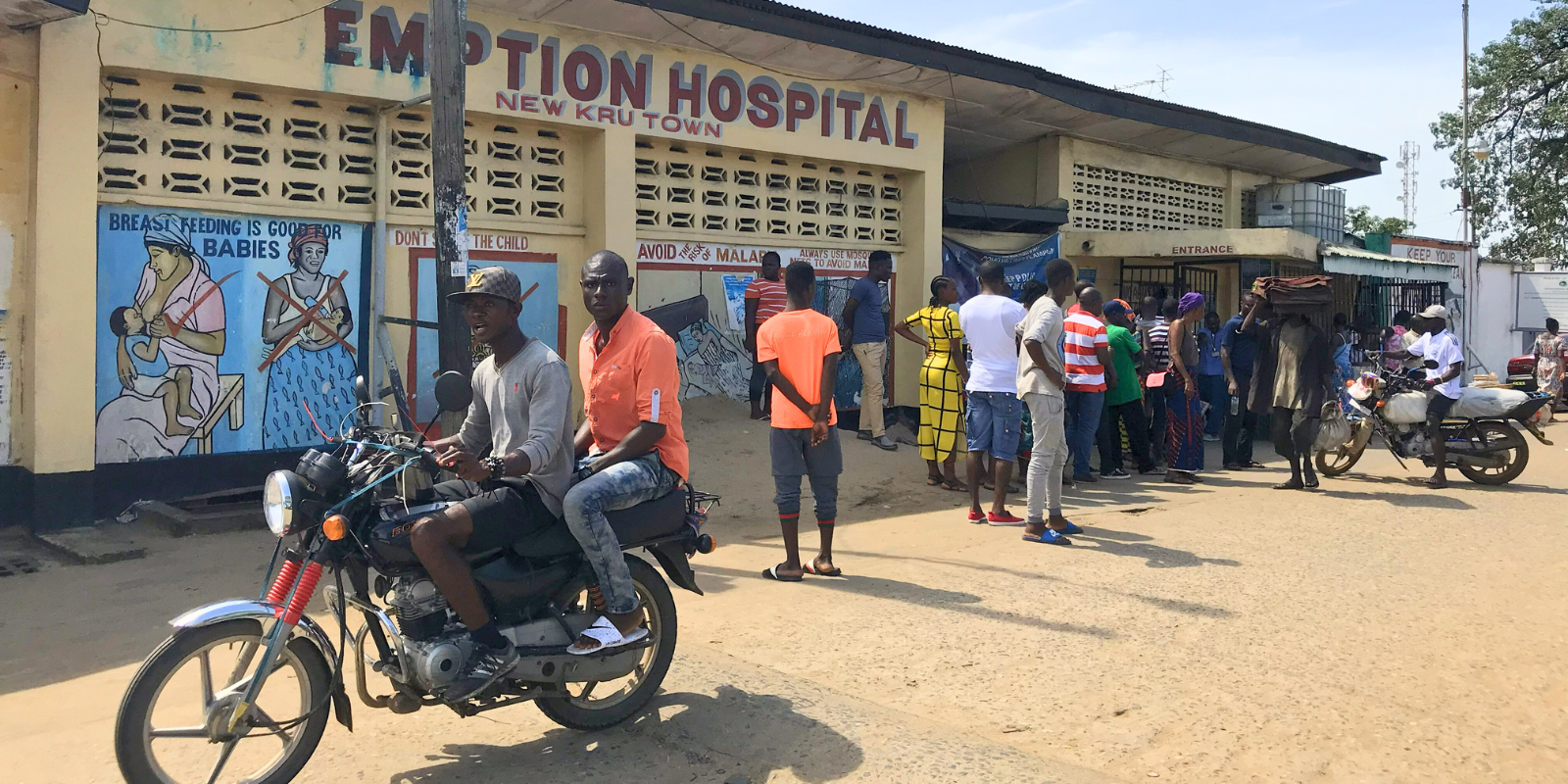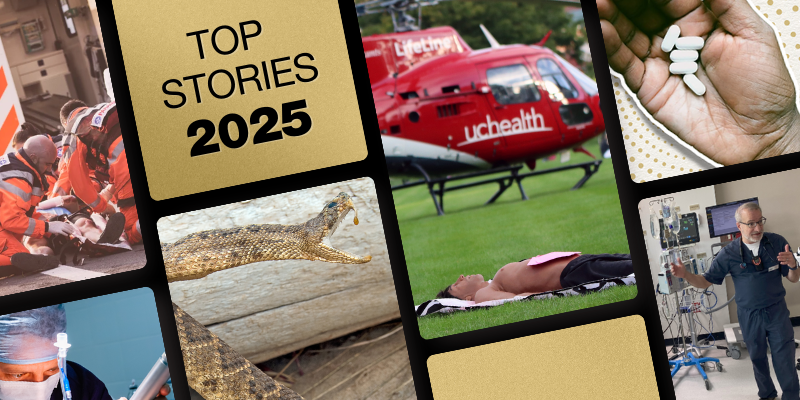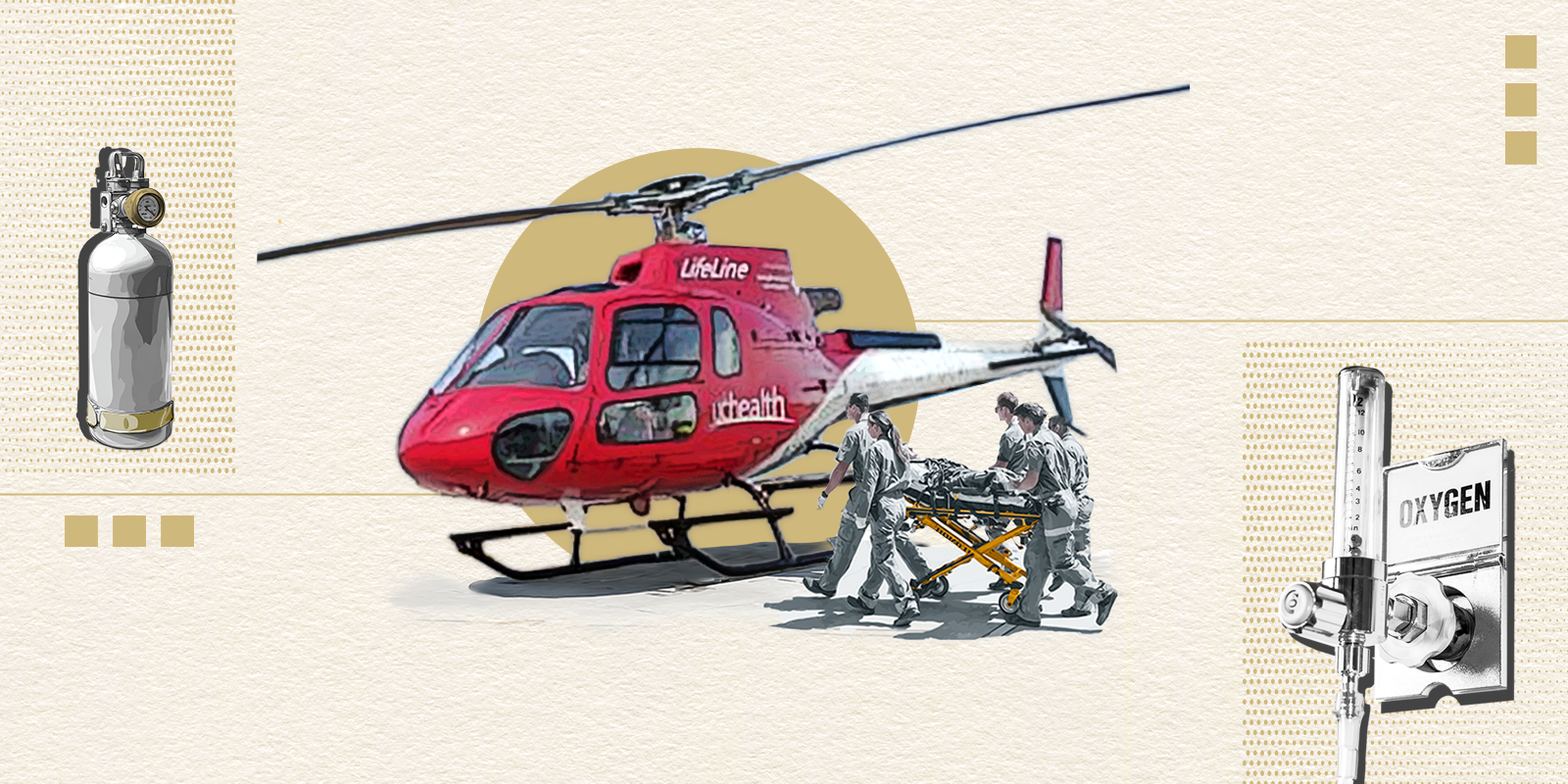The focus on providing care for those on the front lines continues to grow with more investments in research to improve care for service members on battlegrounds. That research was on full display at this year’s Military Health Science Research Symposium (MHSRS), hosted by the Department of Defense (DOD), where researchers and faculty members from the University of Colorado Department of Emergency Medicine presented new scientific findings.
MHSRS brings together health care professionals, researchers, academic programs, organizations, and leaders from the DOD to discuss innovative strategies and tools. This year, researchers from the CU Anschutz Medical Campus, including collaborators and faculty members from the CU Anschutz Center for Combat Medicine and Battlefield (COMBAT) Research, Firearm Injury Prevention Initiative (FIPI) and Airway, Trauma, Lung injury, and Sepsis (ATLAS) Research group presented at the symposium in Kissimmee, Florida.
CU researchers spoke on new airway and lung trauma techniques, firearm storage tactics to prevent injury, and new strategies for oxygen preservation on the battlefield.
“We left the symposium feeling energized and motivated,” says Vik Bebarta, MD, professor of emergency medicine at the CU School of Medicine and director of the Center for COMBAT Research. “This year, MHSRS investigators had a personal and forward-thinking presence, which reminded all of us that we are working to improve the future of military medicine with warfighters at the heart of our mission.”
Collaborating for direct impact
For Bebarta, the collaboration at MHSRS feels different this year and has evolved with CU Anschutz’s commitment to increase collaborations between military personnel and CU on joint research, education, and development of new techniques to meet the health care needs of future battlefield spaces. Earlier this year, CU Anschutz and the Defense Health Agency signed an official Educational Partnership Agreement.
Bebarta has attended the symposium for several years, but 2019 was the first year COMBAT researchers attended as a group. The presence of CU researchers has grown over the past couple of years, he says.
“Events like this are critical for collaboration and help us provide quicker solutions for military medical care,” says Bebarta. “There are a wide range of focus areas that have specific impacts on military medicine, so the researchers are often approached for guidance or expertise at the event, in addition to presenting.”
CU programs lead innovation
“Our researchers and affiliates within the Center for COMBAT Research have a set of values for trust-building and collaboration,” says Bebarta. “We work on many projects together, whether it is a device or tool DOD wants us to test or supporting a clinical trial. We have the resources at COMBAT to guide them and a wide range of specialties and connections within the Department of Emergency Medicine to help solve real-time problems for military professionals.”
Oxygen conservation on battlegrounds is a known challenge due to the transportation of heavy, large, and often expensive oxygen tanks to a mass-trauma incident. Adit Ginde, MD, MPH, professor of emergency medicine and ATLAS principal investigator, through his Strategy to Avoid Excessive Oxygen (SAVE-O2) trial, is informing the military on possible interventions to reduce supplemental oxygen use in critically injured patients.
“We've been focused on providing the military with an answer to the pressing question of how much oxygen is needed for combat missions," says Ginde, who was also a featured speakers at MHSRS, presenting on Using Real World Data to Inform Ongoing Decisions on COVID Therapeutics. "A more conservative approach to oxygen may be better for patient outcomes, but also would help greatly with logistics and planning.”
Another critical presentation was focused on suicide among military members, which is the number one cause of death in the military. Emmy Betz, MD, MPH, professor of emergency medicine and Jessica Buck-Atkinson, MPH, program director of FIPI, presented on firearm locking devices and community-based approaches for firearm violence prevention.
“The majority of suicides are from firearms," says Betz, who is also the deputy director of the Injury and Violence Prevention Center in the Colorado School of Public Health and director of FIPI. "We’re motivated to continue developing and testing collaborative approaches to firearm injury prevention, like finding effective ways for military installation leaders to encourage secure storage of personal firearms.”
Learning from leaders
For Bebarta and the CU team, forward-thinking innovation was a main takeaway from the symposium, along with reducing mortality, ensuring accurate staffing on the battlefield, and providing the most advanced, prepared clinical care.
“This year, there was a keen interest in artificial intelligence, machine learning, and medical technology to keep the future of military medicine front of mind,” says Bebarta. “It’s important for us to share our research, but it is also critical that we learn from others in this space.”
Brigadier General Deydre Teyhen, commanding general at the Brooke Army Medical Center, presented on Operation Warp Speed, which accelerated COVID-19 vaccines and therapeutic development. The project was supported by DOD and the Department of Health and Human Services and was known around the world for leading booster and vaccine production. Operation Warp Speed has strong parallels to Ginde’s research on COVID therapeutics and the presentation affirmed the important connection between military research and global health care needs.
Looking ahead, Bebarta shares, “We’re already looking forward to meeting new collaborators and leaders in the field next year. This event continues to foster our mission of trust, relationships, and collaboration, and reminds us that the impact we have extends beyond the military to civilian care, too.”



